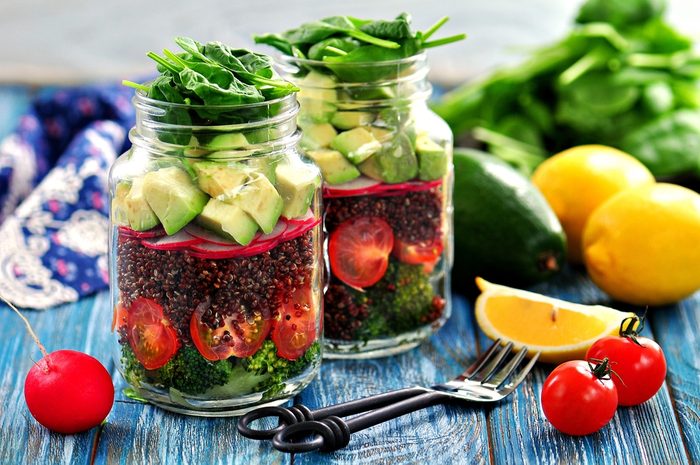
1) Recycle and reuse
Putting things into the recycling bin is great, but there are other ways to recycle. Reuse your plastic wrap, wash zip-lock bags, reuse jars, paper bags and containers, buy produce that isn’t packed in excessive packaging and take your own bags to the supermarket.
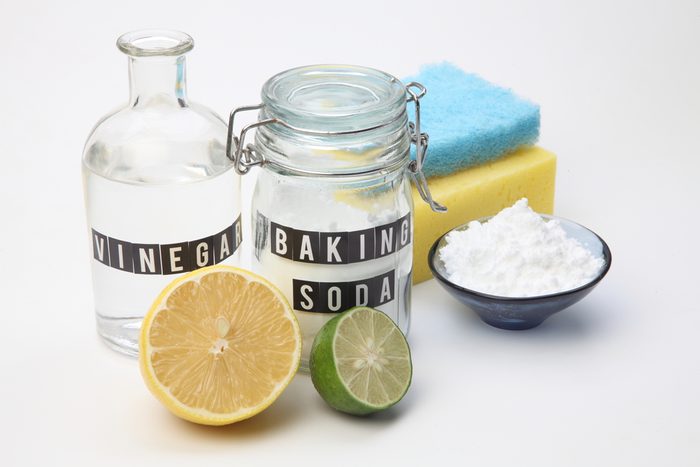
2) Use natural cleaning products
It’s great that you’re looking to help heal your belly by eating gut-loving foods, but if you’re cleaning your house with nonnatural chemical formulas, you may be undoing some of your hard work by ingesting toxins by proxy.
Try to choose natural alternatives that are non-toxic and biodegradable – I use baking soda and vinegar to clean sinks (it cuts grease), vinegar to clean glass and mirrors, and I use a mix of 3 parts filtered water, 1 part white vinegar, 2 teaspoons lemon juice and a few drops of tea tree oil in a spray bottle as an all-purpose cleaner and disinfectant.

3) Drink filtered water
Our bodies are around 60 per cent water, so it makes sense to drink the freshest, purest water you can find. Short of moving to the Swiss Alps, the next best thing is to invest in a good water filter that removes fluoride, chlorine (that kills the bacteria in our tap water but also the good bacteria in our tummies!) and heavy metals from tap water but leaves the good minerals in.
I use mine to fill upwater bottles for myself and the kids, which we take with us to work or school, and cook meals and clean my veg using filtered water.
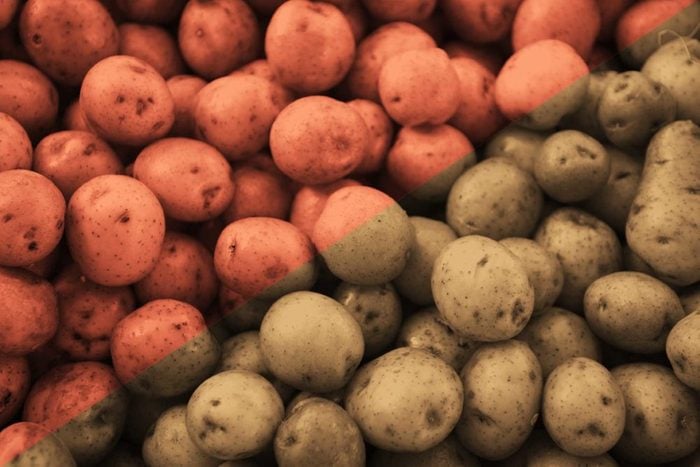
4) Eat dirt?
You don’t have to meticulously scrub your organic veggies – because it may be that a little bit of dirt on your veg is actually good for you.
For example, soil is full of good bacteria, including B12, so the micro bits of soil that linger on your veg are actually an extra gift from nature that’s good for your health and your gut! In saying that, dirt also contains pathogens, so you don’t want to overdo it either.
If you don’t buy organic, soak your fruits and veggies in apple cider vinegar and water to help remove the fungicides and pesticides that are often found on the surface of conventional produce.
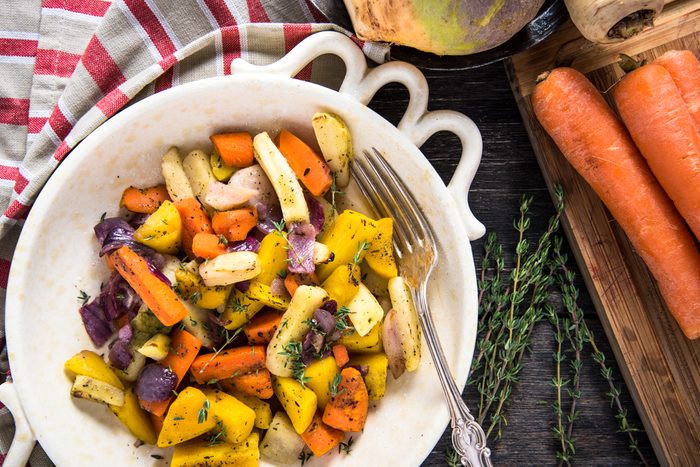
5) Buy and eat in season
It’s not only cheaper, but better for your body too. In winter, foods are naturally more insulating and in spring and summer, boast more cleansing properties, working in synergy with what the body needs to function at its optimum.
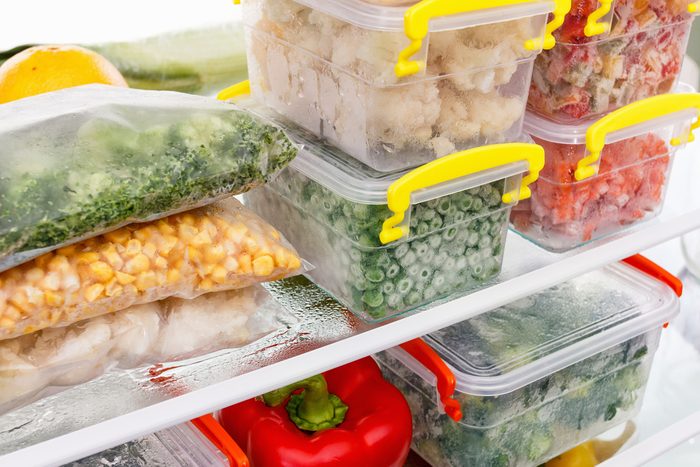
6) Cook and freeze
As a busy mum, I always try to cook in bulk so I can freeze meals to grab when I’m running late and don’t have time to cook. It’s also a great way to ensure that you don’t turn to ready meals and fast foods, which are a temptation when you’re time-strapped or don’t feel like cooking.
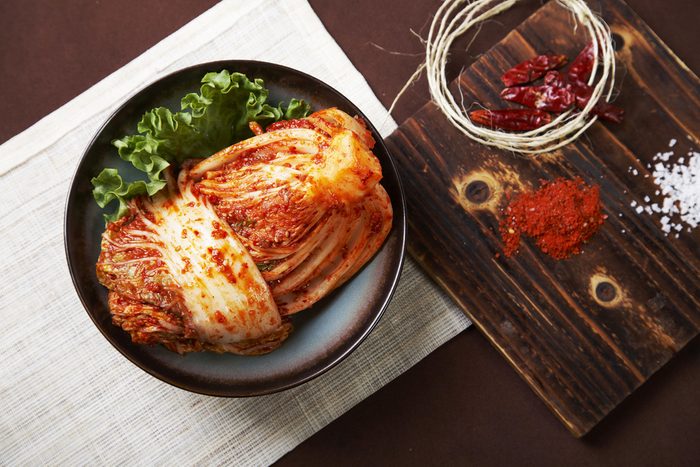
7) Ferment your vegetables
I can’t get enough fermented food in my diet and always have jars of fermented veggies in the pantry. Making and eating fermented foods is one of the best ways to harness a happy gut and glowing skin.
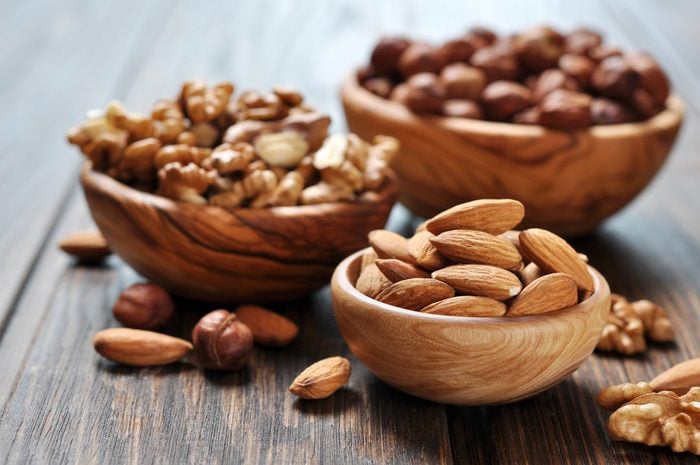
8) Prepare foods properly
Nuts are wonderful things, full of good fats and flavour, but they can be harsh on your digestive system due to their levels of phytic acid. The good news is that you can make them gut-friendly by activating them.
Soak a cup of nuts in enough filtered water (I always add a little apple cider vinegar to the water) to cover, adding a teaspoon of Himalayan salt, for at least 12 hours. Rinse and spread on a baking tray and dry in the oven on the lowest setting for at least 12 hours, or until they have a bit of crunch.
It is important to remember that many plants, not just nuts and grains, contain some anti-nutrients but that by preparing them properly you can help reduce and even neutralise them.
This is not just grains and nuts – kale, for example, is high in oxalates and by cooking it lightly you can improve its nutritional profile.
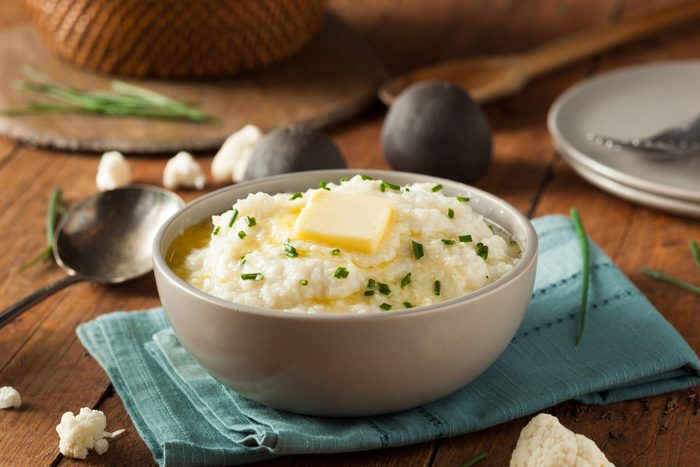
9) Avoid white carbs except for cauliflower
If it’s white, then it’s probably not alright. By white carbs, I mean refined or processed foods that are white in colour, like sugar, flour, cereals, crackers, baked goods, white bread, rice (which I do eat occasionally), white-flour pasta … foods that make you feel tired and bloated, give you cravings and spike your blood sugar levels. These foods are best left on the shelf, not in your shopping trolley.
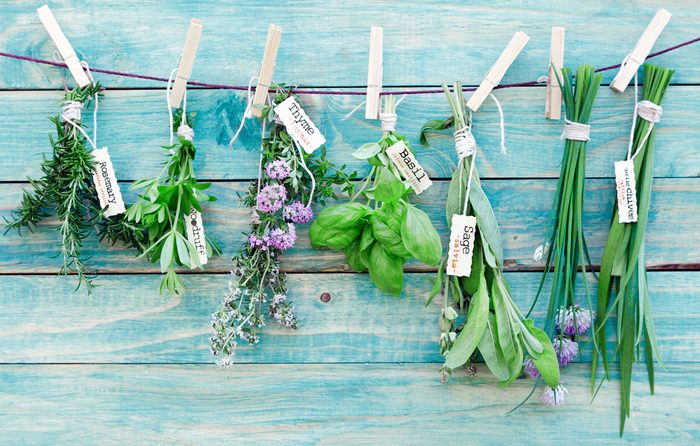
10) Grow herbs
From rosemary, oregano, basil and thyme to lemon verbena, mint, sage, dill, chives, parsley and more, herbs not only add flavour and goodness to my food but I also find tending my patch meditative and relaxing.
Plus being around soil that is rich in microbes has gut-boosting benefits. In fact studies show that children who grow up on organic farms in Europe have less eczema and fewer allergies – they call it the ‘farm effect’ and one theory is that it relates to the exposure to microbial diversity in the soil.
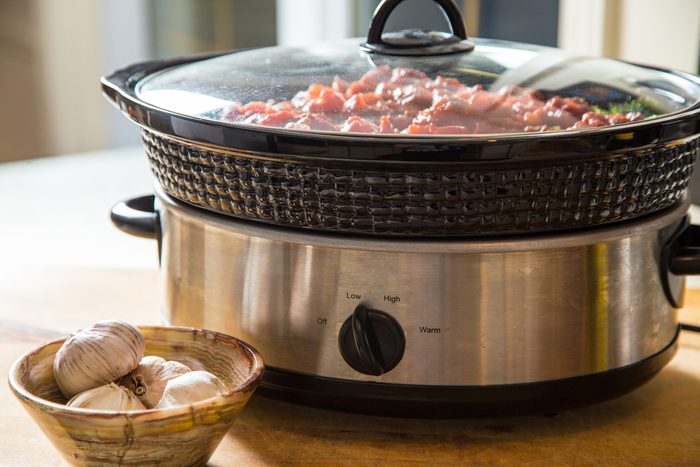
11) Invest in a slow cooker
It is an amazing time saver, as I can literally throw things in the pot, turn on the timer and come home to beautifully cooked, nutritious, easily digested meals.

12) Find good food suppliers
Finding the right butcher, grocer and fishmonger is as important as finding the right doctor. Food is medicine.

13) Chew, chew, chew
I’m a firm believer in chewing food thoroughly. The more you chew, the more saliva you mix with your food, which is a good thing because saliva contains digestive enzymes that lubricate the food and break down fats, all of which is beneficial to your digestive system.
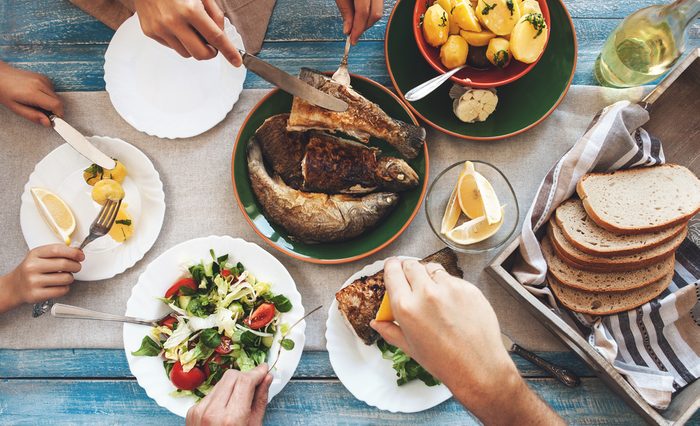
14) No stress at dinner time
Firstly, no arguing at, the dinner table, it compromises digestion and secondly, no forcing anyone to eat their food – it is terrible for digestion. If possible also refrain from drinking while you eat as it dilutes your digestive enzymes that help you break down your meal.
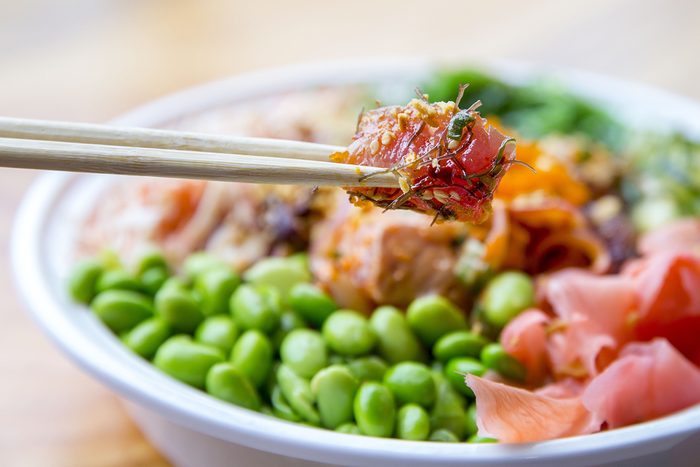
15) Eat raw food in moderation
Raw food is rich in active enzymes, which are brilliant for your health. But if your gut is compromised, raw food can aggravate this, so remember to strike a balance between raw and cooked food.
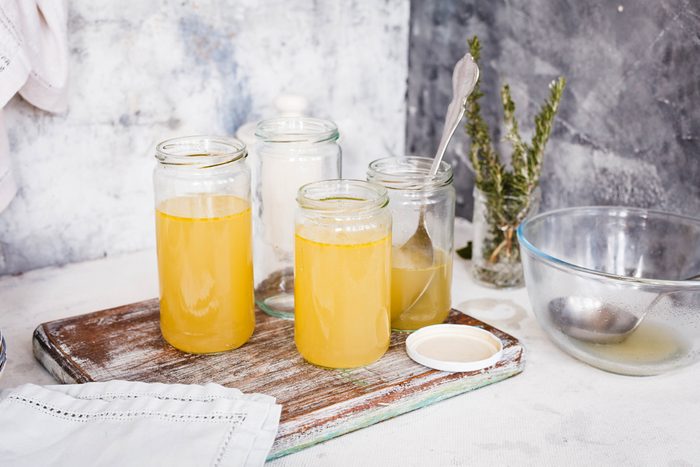
16) Drink bone broth
Bone broth is one of the most healing and restorative foods for your gut, your skin and your wellbeing. It is anti-inflammatory and high in skin-clarifying, gut-healing and collagen-building amino acids and minerals.
Excerpted from The Beauty Chef: Delicious Food for Radiant Skin, Gut Health and Wellbeing Copyright © 2017 by Carla Oates. Published by Hardie Grant Books. Reproduced by arrangement with the Publisher. All rights reserved.
